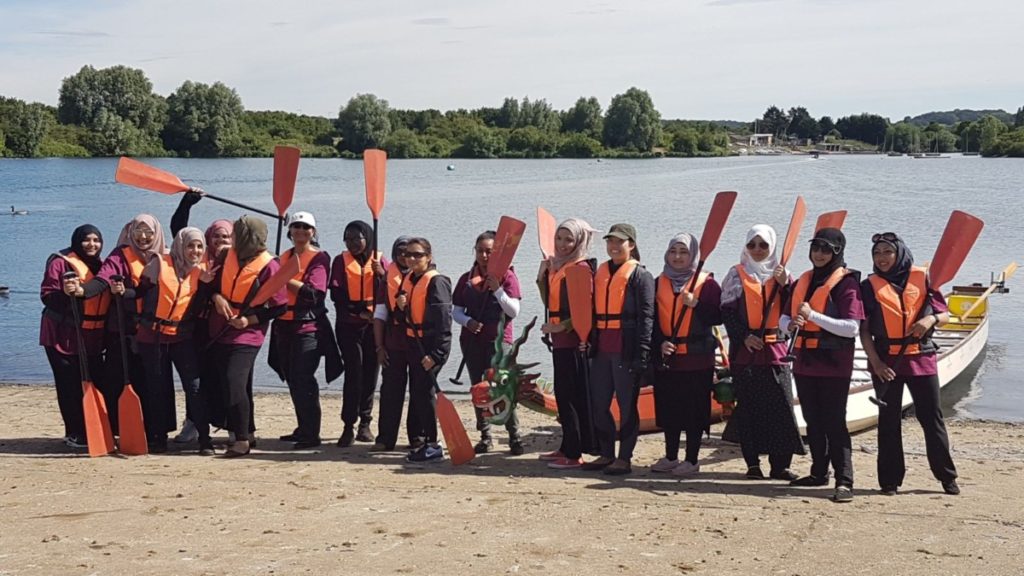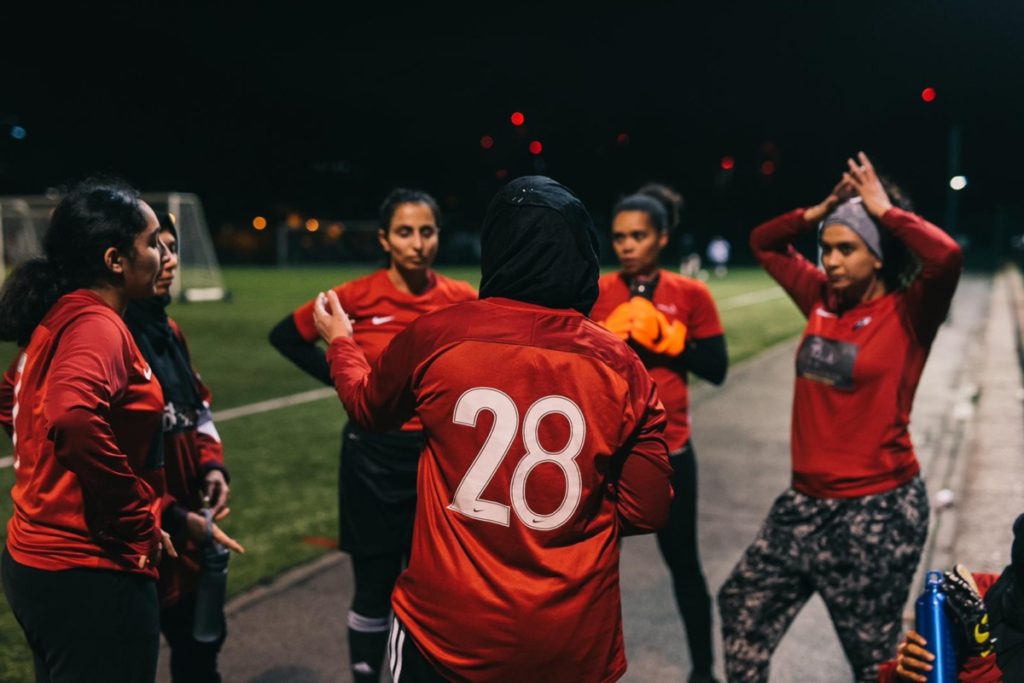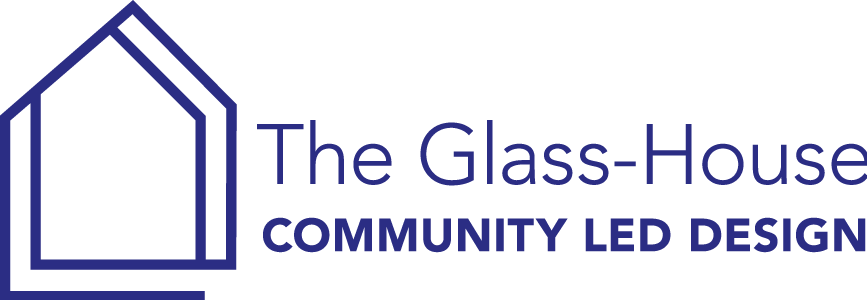Written by:
Our latest blog series is a space to celebrate projects that are championing and enabling civic leadership and cross-sector collaboration in relation to shaping buildings, open spaces, homes or neighbourhoods. I’d like to share a story of civic leadership that has inspired me a great deal, and that raises some really interesting questions around inclusive design.
Muslimah Sports Association (MSA), based in the London Borough of Redbridge is a grass-roots sports charity which describes its work as offering women a safe and positive environment to participate in a number of different sports without compromising their religious or cultural beliefs. Established in 2014 as a completely volunteer-led initiative, before gaining charity status in 2019, it provides a rich programme of affordable and accessible sporting activities for women.

Muslimah Sports Association was founded and is currently led by Yashmin Harun BEM, its Chair, with whom I had the pleasure of working on the London Borough of Redbridge Growth Commission. I spoke to Yashmin about the roots of the organisation, and she explained that it all started with her own frustration at the lack of organised team sports available to her as an adult woman after she left education.

Having been a keen footballer in her youth, she felt the gym did not offer her the same satisfaction or sense of comradery. She wanted to do sport with other women, and she just couldn’t find things on offer for her demographic. She was also particularly struck by the lack of opportunity to practise sport in an all-female environment led by female coaches, which was both her personal preference and an environment more suited to practice sport freely while respecting her religious beliefs.
Yashmin did some research and found the Muslim Women’s Sports Foundation in North London. They had female basketball coaches, and Yashmin convinced them to send one to Redbridge. Yashmin put the word out to her networks, and the number of local women who wanted to take part grew quickly and steadily. From there, MSA built a network of partners and funders and has grown MSA to a charity that now offers over 15 sports a week including Badminton, Basketball, Netball, Karate, Football and Tennis.

Making a difference
This is not just about giving women an outlet for their hobbies. Through partnership working, MSA has delivered some fantastic initiatives to empower local women as well as improve their health and well-being. This includes training and certification opportunities for local women. One other great example Yashmin gave was of a recent project, in partnership with Transport for London and Sustrans, which trained women to ride bikes, culminating with those who had taken part being given a bike to keep. MSA also works with partners and key stakeholders to challenge National Governing Bodies to ensure opportunities for BAME participation at an elite standard.
MSA is an example of civic leadership starting small and growing organically to develop a network of collaborators across sectors. It has also grown a group of local volunteers who help keep the organisation nimble and productive, and who provide the frame into which paid coaching staff are placed. Until last year, when a part-time administrator role was recruited, all of the staffing except the coaching was done on a voluntary basis. What is often not shouted about enough when talking about this kind of civic leadership, is that Yashmin and millions of other volunteers throughout the UK are managing these complex organisations and programmes unpaid, around work and family commitments.
Spotlighting inclusive design
Through its journey over the last few years, MSA has not only revealed a gap in the provision of sports programmes, but also sports facilities that meet the needs of BAME women who are seeking an all-female environment. Yashmin spoke of finding it difficult to find affordable halls for hire locally, and that many of the spaces she did find were not appropriate because they could not guarantee an all-female environment.
In some cases, the fact that halls had galleries, which obviously have their use in creating spaces for spectators, meant that they were not suitable as it could not be guaranteed that no-one would walk into those spaces while the sessions were taking place.
This is also a problem in many gyms, which offer windows onto those exercising. I know I would find it off-putting to exercise in front of passers-by, but for many, this design simply renders them unusable.
Another recurring problem, one that we see in so many multi-purpose spaces, was that the buildings’ key storage spaces were only accessible through the main halls. This meant that both custodians and groups running sessions before or after the MSA sessions tended to move in and out of those spaces and render them unable to guarantee an all-female environment.
Get inspired
Muslimah Sports Association is an organisation that has genuinely inspired me, and I hope will inspire others to make things happen in their own neighbourhood. I hope their story will also inspire local authorities to work with these groups, bringing public sector resources together with their community sectors. And finally, I hope their observations on the spaces on offer will inspire designers to engage diverse user groups in their design processes and to take the time to understand the specificity of needs of their many diverse user groups.

In closing, I asked Yashmin her top tip for those who want to make things happen in their own areas, and here is what she said:
- DETERMINATION: If you are determined enough you will succeed. It took many months before I was able to establish the basketball sessions and before we were getting sustainable numbers. But I persevered because I was passionate about providing a much-needed space in the community. When trust was built between me, MSA and the community the number of participants started to increase and requests for increasing our activities began.
- COMMUNICATION: For anyone wanting to start something for their community it is important to understand the potential barriers including cultural barriers. Speak to the community, understand their anxieties, and address those to build trust and open transparent communication.
- CREATING OPPORTUNITIES: It is important to increase the workforce. If there is a gap, create opportunities for the community to build skills, bridge gaps and gain qualifications. This will ensure sustainability for your organisation.
- NETWORKING: Networking has been a major part of MSA’s success. Getting your industry to know about you, what your aims and objectives are and the barriers you face is important. Build relationships and say yes to everyone until you are able to choose who you work with. If they share the same objectives and they are contributing manpower on your behalf, involve them. As a small organisation, reduced/lack of manpower is one of the main reasons we fail. If other, larger, more experienced organisations are willing to support you, it is important to build a good relationship. However, it is equally important to do your due diligence and don’t be afraid to say no if your organisation is not getting anything fruitful from the working relationship.
- ASK FOR HELP: Don’t be afraid to hold your hands up and ask for help. There are lots of organisations who support the voluntary sector. It is up to you to seek this help out from your own community and networks but often it means going out of your comfort zone.


